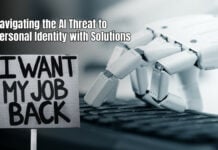
Artificial Intelligence (A.I.) is transforming the way businesses operate, with many companies already seeing the benefits of using A.I. tools to automate routine processes and foster innovation. DALL-E and ChatGPT are two examples of A.I. tools that are helping businesses to drive better results. As A.I. becomes more widely adopted, it is important to prepare the workforce for A.I. collaboration in order to maximize the potential of this powerful technology.
IBM Finds Artificial Intelligence Helpful
IBM is using Artificial Intelligence (A.I.) to automate key steps of the Human Resources (HR) process. This has enabled the company to shift from 700 professionals doing manual HR-related work to less than 50. This has freed up a significant number of people to spend more time providing important talent-related services, such as career guidance and support for managers. A.I. solutions are being deployed across companies to help tackle repetitive tasks, allowing employees to take on higher-value work. This is helping companies to prioritize hiring, promoting, and retaining talent more efficiently and effectively.
The Competitive Advantage of Artificial Intelligence (A.I.) in Business
Artificial Intelligence (A.I.) is providing businesses with a competitive advantage by automating repetitive tasks, such as answering questions and searching for information, with up to 95% accuracy and reducing processing times by up to 60%. Generative A.I. is also being used to compose text and create sales presentations, saving time and sparking innovation. A.I. is helping businesses to become more efficient and productive, allowing them to stay ahead of the competition.
Combining Human Expertise and AI to Accomplish Goals Faster
Molecular generation is a complex process that requires millions of potential combinations of molecules. Generative A.I. can help advance this work, which is essential for discovering new drugs and building efficient batteries. Companies need to prepare their workforce for these new applications of A.I. by combining human expertise and knowledge with A.I. tools to accomplish goals faster. People need to be provided with the relevant skills to work creatively and responsibly with A.I. to make the most of this technology.
Maximizing the Potential of Artificial Intelligence
In order to take advantage of the potential of Artificial Intelligence (A.I.), companies must ensure that their employees are familiar with the new A.I. solutions. Additionally, companies must consider how to move employees away from routine work and into more fulfilling roles. However, A.I. still faces many challenges, such as errors, incorrect responses, and the potential for harmful actions. To ensure the success of A.I., companies must prioritize trust and ensure that their A.I. solutions are reliable and secure.
Responsible and Ethical Use of Artificial Intelligence
Businesses must meet the highest standards of security, privacy, data protection, and compliance when using Artificial Intelligence (A.I.). Companies must be transparent about how their A.I. systems are trained, what data is used, and what goes into the system’s recommendations. To ensure responsible and ethical A.I., any potential for human bias must be removed. A.I. is projected to unlock $16 trillion in productivity by 2030, so it’s important to embrace the partnership between people and A.I. and prepare workforces for the opportunities A.I. has to offer.



